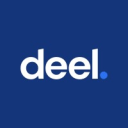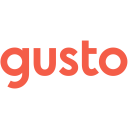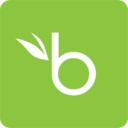Oyster HR vs Deel: Which global HR platform is right for your business?
- 01Oyster HR vs Deel: overview
- 02What's the difference between Oyster HR and Deel?
- 03Oyster HR pros and cons
- 04Deel pros and cons
- 05Oyster HR compared to Deel
- 06Deel compared to Oyster HR
- 07Features comparison
- 08Oyster HR vs Deel: Which is the best for your business?
- 09Promotions on Payroll Management software
- 10Alternatives to Oyster HR & Deel
Access up to $2,156 savings on Oyster HR & $500 on Deel
Access up to $2,156 savings on Oyster HR & $500 on Deel
If you manage a global workforce, then a reliable HR platform is essential. By centralizing employee data and streamlining compliance, you can simplify the complexities of managing a distributed team. An HR platform also ensures that your team, regardless of location, receives consistent support and benefits, helping to maintain morale and productivity. But with several HR platforms available, how do you choose the best one for your business?
This article is a great starting point. In it, we compare two leading global HR platforms—Oyster HR vs Deel. With our detailed comparison of their key features, crucial differences, and pricing strategies, you’ll have the information you need to make an informed decision.
Oyster HR vs Deel: overview
Oyster HR and Deel are two prominent players in the global HR and payroll management space, each offering distinct advantages designed to meet the diverse needs of businesses managing international teams.
Oyster HR stands out for its emphasis on simplicity and compliance, making it an excellent choice for companies that need to hire, pay, and manage remote employees across multiple countries. With its user-friendly interface, Oyster HR streamlines the complexities of global hiring, ensuring that businesses stay compliant with local laws and regulations while providing a seamless onboarding experience. On the other hand, Deel is a comprehensive global HR platform that offers a wide range of features, including contractor management, payroll, and employee benefits. Deel is known for its flexibility, allowing businesses to hire and pay contractors and full-time employees in over 150 countries with ease.
When choosing between Oyster HR and Deel, it’s crucial to evaluate your company’s specific needs and long-term goals. Oyster HR is a top choice for businesses prioritizing ease of use and compliance in global hiring, while Deel is the go-to solution for those needing a more flexible, all-encompassing platform capable of managing both employees and contractors on a global scale.
What's the difference between Oyster HR and Deel?
Oyster HR and Deel are both leading platforms in the global HR and payroll management space, each offering robust features for hiring, managing, and paying remote teams. However, when determining which platform best suits your business needs, it’s important to consider the key distinctions between them.
The primary difference lies in the scope and focus of each platform. Oyster HR is designed with a strong emphasis on global employment compliance and ease of use. It is particularly well-suited for companies that need to hire and manage full-time employees across multiple countries. Oyster HR simplifies the complexities of international hiring by ensuring compliance with local employment laws, offering benefits administration, and providing a seamless onboarding experience. Its intuitive interface makes it easy for companies to manage global teams without getting bogged down in legal and administrative challenges.
On the other hand, Deel offers a broader range of features that cater to both full-time employees and contractors. Deel’s platform is highly flexible, supporting businesses that need to manage a mix of full-time employees and independent contractors in over 150 countries. It excels in contractor management, providing tools for creating localized contracts, handling payments in multiple currencies, and managing taxes and compliance. Deel also offers more extensive options for payroll, including automated payments and benefits administration tailored to local regulations.
Another key difference is in the integrations each platform supports. Oyster HR integrates smoothly with HR systems like BambooHR and other productivity tools, offering a streamlined experience for companies focused on scaling their global workforce. Deel, however, provides a wider range of integrations, including with accounting software like QuickBooks and Xero, making it a more comprehensive solution for businesses that need to manage complex financial workflows alongside HR tasks.
If your primary focus is on compliance and managing full-time employees globally, Oyster HR is an excellent choice. However, if you require a more versatile platform that can handle both employees and contractors with robust financial management features, Deel may be the better fit.

30% off all plans for 1 year on Oyster HR
Get 30% off all plans for 1 year on Oyster HR and up to $2,156 savings with Secret.
Oyster HR pros and cons
What are the advantages of Oyster HR?
- Global compliance: Oyster HR excels in ensuring compliance with local employment laws across various countries. This feature is particularly valuable for companies expanding internationally, as it minimizes the legal complexities associated with hiring and managing employees in different jurisdictions.
- User-friendly interface: The platform is designed with ease of use in mind, making it accessible for HR teams of all sizes. Its intuitive design simplifies the process of onboarding, managing, and paying employees globally.
- Comprehensive employee benefits: Oyster HR offers a range of global employee benefits, including health insurance, retirement plans, and more. These benefits can be tailored to meet the needs of employees in different regions, helping companies attract and retain top talent.
- Seamless integration: Oyster HR integrates with popular HR tools like BambooHR and other productivity software, allowing for a more streamlined HR management experience.
- Transparent pricing: Oyster HR provides clear and transparent pricing, which is particularly useful for startups and small businesses that need to manage costs while scaling their global operations.
What are the disadvantages of Oyster HR?
- Limited contractor support: While Oyster HR is excellent for managing full-time employees, it is less flexible when it comes to supporting contractors and freelancers. Companies with a mixed workforce might find this limitation challenging.
- Fewer integrations compared to competitors: Although it integrates with key HR tools, Oyster HR offers fewer integrations compared to competitors like Deel. This can be a drawback for companies that rely on a broader range of software solutions.
- Focus on compliance over flexibility: Oyster HR’s strong focus on compliance can sometimes result in less flexibility in contract terms and employment arrangements, which might not be ideal for businesses with unique or unconventional employment needs.
- Learning curve for advanced features: While the platform is generally user-friendly, some of its more advanced features can have a steeper learning curve, requiring additional time and training for HR teams to fully utilize them.
- Limited payroll support in certain regions: Oyster HR provides robust payroll support in many countries, but there are still some regions where its payroll capabilities are limited or less comprehensive compared to other platforms. This can be a challenge for companies with employees in those areas.
Deel pros and cons
What are the advantages of Deel?
- Comprehensive contractor management: Deel is highly flexible in managing both full-time employees and independent contractors. It supports the creation of localized contracts, handling payments in multiple currencies, and ensuring compliance with local regulations, making it ideal for businesses with a diverse workforce.
- Global payroll capabilities: Deel offers robust global payroll services, including automated payments, tax calculations, and benefits administration. This makes it easy for companies to manage payments and benefits for employees and contractors across over 150 countries.
- Wide range of integrations: Deel integrates with a variety of accounting and HR software, such as QuickBooks, Xero, and BambooHR. This allows businesses to streamline their financial and HR operations, reducing manual data entry and improving efficiency.
- Localized compliance support: Deel provides extensive support for localized compliance, including the ability to generate compliant contracts and handle local tax obligations. This feature helps companies avoid legal issues when expanding into new regions.
- User-friendly platform: Deel's platform is designed to be intuitive and easy to use, even for businesses without a dedicated HR team. The straightforward interface simplifies the process of managing international teams, from onboarding to payroll.
What are the disadvantages of Deel?
- Higher costs for small businesses: Deel’s extensive features and capabilities can come at a higher cost, which might be a consideration for startups or small businesses with limited budgets. The platform’s pricing may be less competitive compared to simpler, more budget-friendly alternatives.
- Complex setup for larger teams: While Deel is user-friendly, setting up the platform for larger teams or complex organizational structures can be time-consuming. Businesses with more intricate needs may require additional support during the implementation phase.
- Limited focus on employee benefits: Although Deel offers some benefits administration, its primary focus is on payroll and contractor management. Companies that require extensive employee benefits packages might find Deel’s offerings less comprehensive compared to platforms like Oyster HR.
- Limited in-house support in certain regions: Deel relies on local partners for compliance and payroll support in some regions, which can sometimes result in slower response times or less direct support compared to platforms with in-house experts in every country.
- Learning curve for advanced features: Deel offers a wide range of features, but some of the more advanced tools, such as custom reporting and compliance tracking, may have a steeper learning curve. HR teams may need to invest time in training to fully leverage these capabilities.
Compare Deel to other tools
Oyster HR compared to Deel
Oyster HR and Deel are both strong contenders in the global HR space, but they cater to slightly different needs. Oyster HR is particularly suited for companies focusing on hiring and managing full-time employees across multiple countries, offering seamless compliance and a user-friendly interface tailored for international teams.
In contrast, Deel provides a broader range of features, including extensive support for both contractors and full-time employees, making it a more versatile option for businesses with mixed workforces. While Oyster HR excels in simplicity and compliance, Deel stands out for its flexibility and comprehensive global payroll solutions.
Is Oyster HR better than Deel?
Whether Oyster HR is better than Deel depends on your specific business needs. Oyster HR is ideal for companies that primarily focus on hiring and managing full-time employees, offering a user-friendly interface and strong compliance support tailored for international teams. It excels in simplifying complex HR tasks, making it a great choice for businesses prioritizing ease of use and legal adherence.
However, if your business requires managing both full-time employees and contractors with a need for flexible payroll and payment solutions, Deel might be the better option. Deel's broader feature set provides versatility, making it suitable for diverse workforce management.
What is Oyster HR best used for?
Oyster HR is best used for managing and scaling a global workforce, particularly for companies looking to hire full-time employees across multiple countries. It excels in ensuring compliance with local employment laws, simplifying the complexities of international hiring, onboarding, and payroll.
With its user-friendly interface, Oyster HR streamlines the administrative processes involved in managing distributed teams, making it ideal for businesses that prioritize ease of use and legal compliance. The platform also offers global employee benefits, making it a comprehensive solution for companies aiming to attract and retain top talent in various regions.
Can Oyster HR replace Deel?
Oyster HR and Deel serve overlapping but distinct purposes, making them not entirely interchangeable. Oyster HR is ideal for companies focused on hiring and managing full-time employees globally, with strong features in compliance, onboarding, and benefits administration.
Deel, however, offers broader functionality, including extensive contractor management and flexible payroll options across more countries. While Oyster HR excels in simplicity and compliance for full-time employees, it may not fully replace Deel for businesses needing a versatile solution that can handle both contractors and employees.
Is Oyster HR cheaper than Deel?
Oyster HR and Deel offer different pricing structures, making it difficult to directly compare their costs. Generally, Oyster HR’s pricing plans are more cost-effective for companies primarily focused on managing full-time employees across multiple countries, as it provides straightforward pricing tailored to global employment compliance and benefits.
Deel, with its broader feature set that includes extensive contractor management and more flexible payroll options, may come at a higher cost, especially for businesses that need to manage a diverse workforce.
Is there a better Payroll Management software than Oyster HR?
While Oyster HR is a top-tier platform for managing global teams and ensuring compliance, it's important to explore alternative HR solutions to find the best fit for your specific business needs.
Notable alternatives to Oyster HR include Deel, Remote, Papaya Global, and Rippling, each offering unique features and benefits tailored to different aspects of global HR management.
Choosing the ideal HR software depends on factors like the complexity of your workforce, the need for contractor management, compliance requirements, and integration capabilities. Oyster HR is excellent for compliance and full-time employee management, but exploring these alternatives can provide insights that help you make a well-informed decision aligned with your HR objectives.
30% off all plans for 1 year on Oyster HR
Get 30% off all plans for 1 year on Oyster HR and up to $2,156 savings with Secret.
Deel compared to Oyster HR
Deel and Oyster HR are both powerful platforms for managing global teams, but they cater to slightly different needs. Deel offers a broader range of features, including robust support for both full-time employees and contractors, making it highly versatile for businesses with mixed workforces. It excels in contractor management, flexible payroll options, and extensive integrations.
In contrast, Oyster HR focuses on simplifying the management of full-time employees across various countries, with a strong emphasis on compliance and employee benefits. While Oyster HR is ideal for companies prioritizing compliance and simplicity, Deel provides greater flexibility and broader functionality for diverse global teams.
Is Deel better than Oyster HR?
Whether Deel is better than Oyster HR depends on the specific requirements of your business. Deel is particularly advantageous for companies needing a versatile platform that effectively manages both full-time employees and contractors. It offers greater flexibility with its advanced payroll options, broader range of integrations, and robust contractor management capabilities, making it well-suited for businesses with diverse workforce needs.
However, if your focus is primarily on managing full-time employees with a strong emphasis on compliance and employee benefits, Oyster HR might be the more suitable choice. Deel's strength lies in its ability to handle complex, varied workforce structures.
What is Deel best used for?
Deel is best used for managing a diverse global workforce that includes both full-time employees and independent contractors. It excels in providing flexible payroll solutions, localized compliance, and contract management across over 150 countries.
Deel is particularly effective for companies that need to handle complex workforce arrangements, such as managing payments in multiple currencies and ensuring compliance with varying local labor laws. Its platform is designed to streamline the process of onboarding, paying, and managing remote workers, making it an ideal solution for businesses looking for versatility in managing a global and distributed team.
Can Deel replace Oyster HR?
Deel can replace Oyster HR for businesses that require a more versatile platform capable of managing both full-time employees and contractors across multiple countries. Deel offers broader functionality with extensive contractor management, flexible payroll options, and a wide range of integrations.
However, if your primary focus is on managing full-time employees with a strong emphasis on compliance and employee benefits, Oyster HR might be better suited to your needs. While Deel provides comprehensive global workforce management, including compliance and payments, the choice between Deel and Oyster HR depends on whether you need broader contractor support or specialized employee management.
Is Deel cheaper than Oyster HR?
Whether Deel’s pricing plans are cheaper than Oyster HR depends on your specific needs and the structure of your workforce. Deel offers a wide range of features, including contractor management, payroll, and compliance across many countries, which can lead to higher costs, especially for businesses with complex needs.
Oyster HR, on the other hand, focuses on full-time employee management and compliance, potentially offering more cost-effective pricing for companies that primarily need to manage salaried employees. The overall cost comparison between Deel and Oyster HR will vary based on factors like the number of employees, contractors, and the specific services required.
Is there a better Payroll Management software than Deel?
While Deel offers a comprehensive solution for global workforce management, it’s important to consider alternative software options to find the best fit for your specific business needs.
Notable alternatives to Deel in the HR and payroll software space include Oyster HR, Gusto, PayFit, and Rippling, each offering unique strengths in managing international teams.
Choosing the right software depends on factors such as the complexity of your workforce, the need for contractor versus employee management, and your company’s compliance requirements. Deel is a powerful tool for versatile global workforce management, but exploring these alternatives can provide valuable insights and help you make a well-informed decision that aligns perfectly with your HR objectives and operational needs.
$500 in credits on Deel
Get $500 in credits on Deel and up to $500 savings with Secret.
Features comparison
Deel Surpasses Oyster HR with Advanced Time and Attendance Compliance Features
Although both tools offer time and attendance tracking features, Deel takes it a step further by integrating automatic timesheet generation that is fully compliant with local labor laws. This advanced feature is particularly beneficial for businesses operating across multiple jurisdictions, where labor regulations can vary significantly. For instance, Deel’s automatic timesheet generation ensures that hours worked are accurately tracked and reported, aligning with regional requirements for overtime, breaks, and holidays. This not only relieves businesses from potential legal issues but also frees up valuable time and resources, allowing them to focus more on strategic growth initiatives.
In contrast, while Oyster HR offers solid time tracking capabilities, it does not provide the same level of automated compliance support, making Deel the better choice for companies that prioritize comprehensive legal adherence in their workforce management processes.
Deel Surpasses Oyster HR with Superior Payroll and Payment Management Features
While Oyster HR does automate payroll, efficiently handling different currencies and ensuring compliance with diverse tax regulations, Deel offers a more robust and comprehensive solution in this area. Deel’s platform not only manages payroll but also simplifies the complexities associated with international payments. For instance, Deel’s integrated system alleviates concerns about fluctuating conversion rates by providing transparent, real-time currency conversions. Additionally, Deel supports various payment methods, including bank transfers, PayPal, and even cryptocurrency, giving businesses the flexibility to choose the most convenient options for their employees and contractors.
Moreover, Deel’s ability to manage multiple accounts across different countries streamlines financial operations, making it easier for companies to pay their global workforce without the usual stress and complications. This makes Deel the superior choice for businesses seeking a more comprehensive and user-friendly payroll and payment management system compared to what Oyster HR offers.
Both Oyster HR and Deel Excel in Ensuring Global Compliance and Legal Expertise
Both Oyster HR and Deel place a strong emphasis on compliance and legal expertise, essential for managing a global workforce. Oyster HR is particularly known for its deep understanding of local labor laws across various countries, ensuring that remote employment practices are always compliant with regional regulations. For example, Oyster HR’s platform helps businesses navigate complex legal landscapes by automatically updating contracts and policies in line with local laws, reducing the risk of non-compliance.
Similarly, Deel excels in this area by ensuring compliance for every contractor, meticulously collecting all necessary legal documents, and creating legally compliant contracts with e-signature capabilities. Deel’s strength lies in its ability to handle the intricacies of contractor agreements across multiple jurisdictions, making sure that every contract is legally sound and properly documented. Both platforms demonstrate a strong commitment to compliance, offering businesses peace of mind when managing international teams.
Oyster HR Excels Ahead of Deel in User-Friendliness and Intuitive Design
When it comes to usability, Oyster HR proves to be a more intuitive and user-friendly platform compared to Deel. Oyster HR’s interface is designed with simplicity in mind, making it accessible even to non-tech-savvy users. Navigating through the platform feels smooth and straightforward, which is crucial for businesses that want to focus on HR tasks without getting bogged down by complex software.
In contrast, while Deel offers a wide range of insightful features, first-time users often find its interface somewhat cluttered and less intuitive. For example, the onboarding process in Oyster HR is streamlined, guiding new users step by step and reducing the learning curve, which is especially beneficial for smaller HR teams. Oyster HR’s commitment to user experience is evident in its design ethos, where simplicity and functionality are prioritized, making complex HR tasks more manageable and setting it apart from Deel in terms of overall user-friendliness.
Deel Surpasses Oyster HR with Superior Integration Capabilities
While Oyster HR has its strengths, Deel overtakes when it comes to integrations. Deel offers a robust set of integration capabilities that sync seamlessly with a broad range of popular business tools, enhancing its overall functionality and versatility. For example, Deel easily integrates with leading payroll systems like QuickBooks and Xero, project management software such as Asana and Trello, and communication platforms like Slack. These integrations allow businesses to create smoother workflows and centralize their operations.
In contrast, Oyster HR’s integration offering is more limited, providing compatibility with only a select few tools, such as BambooHR and Greenhouse. For businesses seeking a more comprehensive and integrated solution that streamlines operations across various systems, Deel clearly emerges as the more appropriate choice, offering a wider array of options to fit diverse business needs.
Oyster HR Excels Over Deel with Comprehensive Benefits Management
While Deel offers a comprehensive hiring and onboarding process that covers the essentials for managing a global workforce, it falls short in the area of benefits management, making no specific mention of this crucial aspect. In contrast, Oyster HR not only provides robust tools for managing employee benefits but also ensures that these benefits comply with local regulations across various countries.
For example, Oyster HR supports global health insurance, retirement plans, and other localized benefits that are crucial for maintaining employee satisfaction and retention. This attention to detail makes Oyster HR a superior choice for companies that prioritize not just hiring and onboarding, but also the ongoing well-being and satisfaction of their global employees. By addressing benefits management alongside compliance, Oyster HR helps businesses create a more supportive and legally compliant work environment, setting it apart from Deel.
Oyster HR Excels Over Deel with Comprehensive Performance Management Tools
While efficient communication is a critical aspect of team management, Oyster HR goes beyond basic communication features by offering a dedicated performance management framework that enables regular feedback, goal setting, and performance reviews. This comprehensive tool fosters accountability and professional growth within teams, allowing managers to track progress and provide constructive feedback in real-time. For example, Oyster HR’s framework supports the creation of individualized goals and regular performance check-ins, ensuring that employees stay aligned with company objectives and continue to develop their skills.
In contrast, Deel primarily focuses on communication and collaboration, lacking the in-depth performance management capabilities that Oyster HR provides. This makes Oyster HR the superior choice for organizations that prioritize structured employee development and continuous performance improvement.
Subscribe to our newsletters.
No FOMO here. Stay up-to-date on all the latest deals and news with our monthly newsletter straight to your inbox like 125,000+ entrepreneurs (+ Get 10% off on on our Premium Membership!)
Oyster HR vs Deel: Which is the best for your business?
Oyster HR is the best tool for you if:
- You need a platform that excels in managing full-time employees across multiple countries with a focus on compliance and legal regulations.
- You prioritize user-friendly interfaces that simplify complex HR tasks like onboarding, payroll, and benefits management, especially for non-tech-savvy teams.
- You require comprehensive global benefits administration that ensures employee satisfaction and retention across various regions, aligned with local regulations
- Your business seeks a solution that seamlessly integrates with essential HR tools like BambooHR and Greenhouse for streamlined operations.
- You value transparent pricing and straightforward services without the need for extensive contractor management or complex payment workflows.
Deel is the best tool for you if:
- You manage a global workforce that includes both full-time employees and contractors, requiring a versatile platform that handles diverse employment types seamlessly.
- You need a robust solution for international payroll, with features like automatic currency conversion and multiple payment methods to streamline global financial operations.
- You prioritize comprehensive compliance support for contractors, including the creation of legally compliant contracts and collection of necessary documentation across various countries.
- Your business requires extensive integrations with accounting, HR, and project management tools to create a unified, efficient workflow across different systems.
- You seek flexibility in managing payments, including options for bank transfers, PayPal, and cryptocurrency, tailored to meet the needs of a diverse workforce.

30% off all plans for 1 year on Oyster HR
Get 30% off all plans for 1 year on Oyster HR and up to $2,156 savings with Secret.
Alternatives to Oyster HR & Deel
Promotions on Payroll Management software
Start saving on the best SaaS with Secret.
Secret has already helped tens of thousands of startups save millions on the best SaaS like Oyster HR, Deel & many more. Join Secret now to buy software the smart way.










